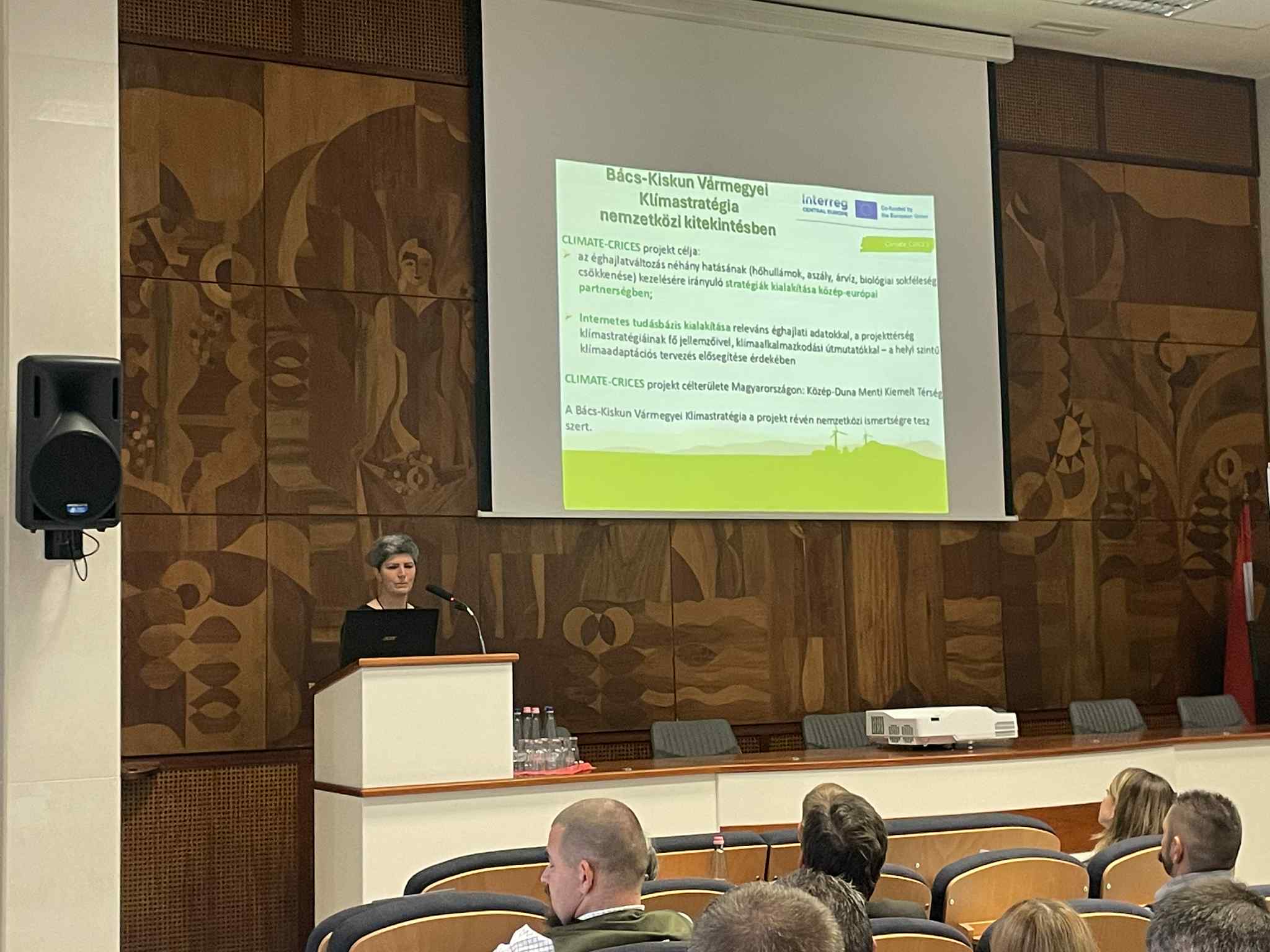The conference featured the county’s updated Climate Strategy 2025–2030, highlighting rising climate risks: in the past century, the southern county has seen 21 more heat days per year, and dry spells now last up to 30 consecutive days, despite stable rainfall. These trends underline the need for coordinated adaptation measures.
Showcasing Local Solutions
Practical approaches to climate adaptation were presented across sectors:
• Eszter Dobozi a key expert of CDDA introduced the renewed County Climate Strategy and highlighted the Climate_CRICES Interreg project. Her presentation emphasized the project’s Central European partnership, an online knowledge base with climate data and adaptation guidance, Bács-Kiskun’s role in the Central Danube Priority Area, and how the county’s strategy gains international visibility through Climate_CRICES.
• Other highlights included community energy models, ecological restoration in the Homokhátság region, regenerative settlement management, rural sustainability initiatives, and the use of industrial hemp in climate-smart agriculture.
The recurring message: “Think big, act small.” Large-scale climate goals rely on practical, community-level action, supported by expert knowledge and cross-sector collaboration.
Linking Climate_CRICES to Local Action
The Climate_CRICES project was highlighted in the conference through Eszter Dobozi’s presentation, showcasing how the initiative supports climate adaptation across the Central Danube Priority Area. As a key project partner, the Central Danube Development Agency (CDDA) ensures that Climate_CRICES tools, methodologies, and knowledge reach counties like Bács-Kiskun.
The conference illustrated how local strategies and European partnerships can reinforce each other, strengthening county-level adaptation while contributing to broader Central European collaboration. By sharing best practices and scalable solutions—and connecting them to initiatives like Climate_CRICES—the event helps build long-term resilience for communities between the Danube and Tisza rivers.
